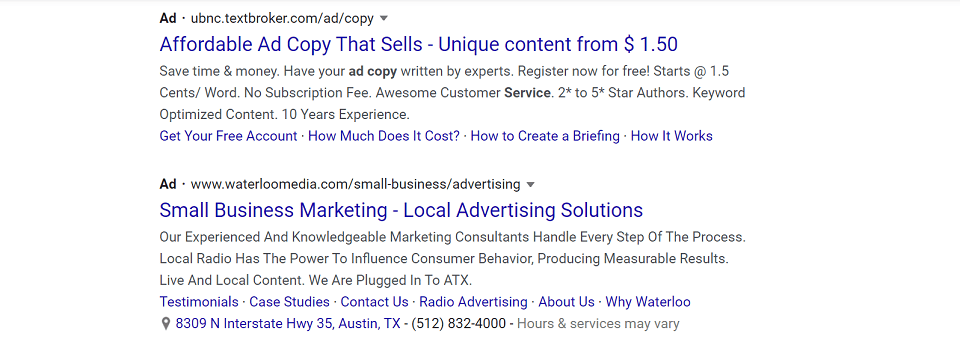When operating a successful blog becomes problematic or you simply have difficulty getting things off of the ground, you might be tempted to give up altogether. Before you throw in the towel, though, remember that other bloggers have dealt with the same issues.
They have successfully navigated the troubles that you face now and gone on to be successful. There is no reason that you cannot do the same.
Keep reading to learn about some of the most painful blogging problems many new bloggers face, and the strategies for overcoming these obstacles.
Lack of Focus
Take a look at your last seven-to-ten blog posts. Do they seem like they could be written for several different audiences? What about your advertisements or affiliate marketing links?
If your blog looks as if you are simply trying to throw out random content to earn advertising dollars or get anybody to subscribe to your posts, you won’t gain much of an audience or establish yourself as a reputable blogger.
Take a step back and decide what the primary focus of your blog is going to be. Then, figure out who your target audience is.
Once you instill some focus and discipline in your blogging, you will find that it is easier to establish yourself.
Not Enough Knowledge on Your Part
As your blog grows, your knowledge needs to keep up as well. In fact, you should make learning as much as you can about your subject matter one of your top priorities.
Why? Because as your blog grows along with your audience, your readers will have increasingly high standards for you when it comes to your depth of knowledge.
Of course, that is just one thing to consider. You will also want to learn as much as you can about blogging itself.
For example, if you use WordPress, you will want to learn as much as possible about the various plugins and other utilities you can use to enhance your blog. If you want to increase your blog’s popularity, you’ll want to educate yourself on SEO, keyword research, and other tools that you can use to ensure your audience grows.
Safari Digital Southampton suggests that the most common mistake businesses make is failing to plan how users can find their content once they drop off of social media feeds.
Without effective keyword planning and targeting, websites will find that their content is almost impossible to find in Google search.
Your Audience is Too Small
What do you do when it feels like you are simply blogging for a few friends and family members?
If you don’t have a decently sized audience, blogging can seem like a real waste of time. For a blog that is associated with a business, or when you are trying to earn a living through blogging, a small audience can be disheartening.
Fortunately, there are many ways to increase the size of your audience.
One frequently overlooked method is to simply promote your blog posts. When you publish something on your blog write promotional posts to share on Facebook, Twitter, and other social media sites.
In fact, you should spend as much time planning your promotional efforts as you do publishing great content.
You’ll also want to reach out to other bloggers in your niche. Follow them on social media and engage with them directly.
Eventually, they and their audience members will start taking notice of your content. This will begin to drive more people toward your blog.
Finally, establish yourself as a thought leader in your niche. People aren’t likely to subscribe or give your content a second look if it is simply mildly interesting.
Head over to Twitter and find relevant conversations. Then start participating by sharing your knowledge and experience.
Check out the question and answer forums like Quora. Find questions that are related to your expertise and provide your insights and answers.
This is how you slowly become recognized as an expert in your field.
Difficulty Monetizing Your Blog
There’s nothing wrong with blogging for profit.
The only problem is that it can be difficult to make the leap from blogging as a hobby to fully monetizing your blog.
Here are a few tips that might help:
- Research Your Advertising Options Thoroughly
- Track Your Ad Spending And Revenue. Cut Out Sources That Are Costing You Too Much Money.
- Get Customer Feedback on Your Advertisements And Affiliate Marketing Links.
- Create Customer Personas and Choose Your Affiliate Marketing Based on Their Needs.
- Focus on High-Quality Content Above All.
- Take a Look at The Layout of Your Blog. Does it Look Like a Blog With a Bit of Advertising or an Advertising Junkyard That Happens to Have a Few Paragraphs of Blog Content?
- Are You Being Forthright About Your Monetization Efforts? Your Audience Expects That You Are Trying to Earn Money. Just be Upfront About it. Post Disclaimers About Affiliations When You Recommend or Review Products.
Issues With Content Quality And Frequency
If you are a new blogger or your blog is growing faster than you anticipated, you might struggle to meet your audience’s demands as far as content frequency. Then, as you try to produce content quickly, you may find that quality suffers.
Here are a few tips for dealing with that quandary:
- Curate Content That You Know Will Interest Your Audience
- Use Tools to Create Compelling Visual Content
- Go Back to Old Content And Refresh it And Publish it Again
- Read Blogs For Advice
- Use Tools Like AllTop to Find Trending Content
- Improve Your Writing by Using Grammarly, Hemingway, And Other Tools
- Use an Editorial Calendar to Keep on Top of Your Publishing And Promoting
- Crowdsource Content From Enthusiastic Followers
- Double check for the uniqueness of your content using an online plagiarism checker
- Ask Influencers in Your Niche to Guest Blog For You
Start off by trying out just a few of these tips and you will be surprised at how frequently you are able to share great content.
Fear of Publishing
Let’s be honest… There is a part of blogging that is absolutely intimidating for many people. Each and every time you publish a blog post, you are truly putting yourself out there.
Your thoughts, opinions, writing style, and more are out there for comment and criticism each time you make one of your blog posts available to the public.
First, here’s a reality check: Not everybody will like you or your blog. Some will genuinely find something in your writing style, your branding, or your opinions that they truly dislike.
In that case, take their criticism, consider it carefully, improve where you can, then let it go. You’ll also run into trolls. The best way to deal with them is simply not to feed them or respond.
Mostly, keep in mind that the blogging community as a whole is both supportive and forgiving, as is the majority of your audience.
Make a sincere effort to post quality content, continue to educate yourself and grow as a blogger, and you will be just fine. The positive feedback that you receive will have much more of an impact on you than the negative.
Inability to Handle Engagement
Now you’ve done it. You published a post, gone to bed, and woke up to chaos. You’ve done what all bloggers want to do. You have written a viral post.
This means that you are now living in a world of intense social media engagement. Your post is being shared, retweeted, and linked.
Your social media feeds are clogged with commentary, and the hits keep coming (in a good way). You visit your blog and the number of comments and social shares are through the roof.
Now, what? The entire point of creating a blog is to grow an audience and foster engagement. Unfortunately, if you cannot handle the volume or types of engagement that you receive, you will quickly return to obscurity.
The first thing to do is pick a tool for managing blog comments. Then, you will want to make a plan for dealing with intense engagement.
This should cover methods for dealing with conflict or complaints, determining which team members will be in charge of engagement on various social media platforms, and most importantly a plan to take that engagement and turn it into conversions.
Conclusion
Nearly every blogger will face at least a few of these seven painful blogging problems.
Fortunately, if you handle them correctly, they will not become an ongoing problem for you. In fact, some of them have the potential to be turned into opportunities for growth.
Featured Image provided by the author under her own license.
Disclaimer: The views and opinions stated in this post are that of the author, and Return On Now may or may not agree with any or all of the commentary.
Eliza Medley
Latest posts by Eliza Medley (see all)
- 7 Painful Blogging Problems And How to Solve Them - February 21, 2017





